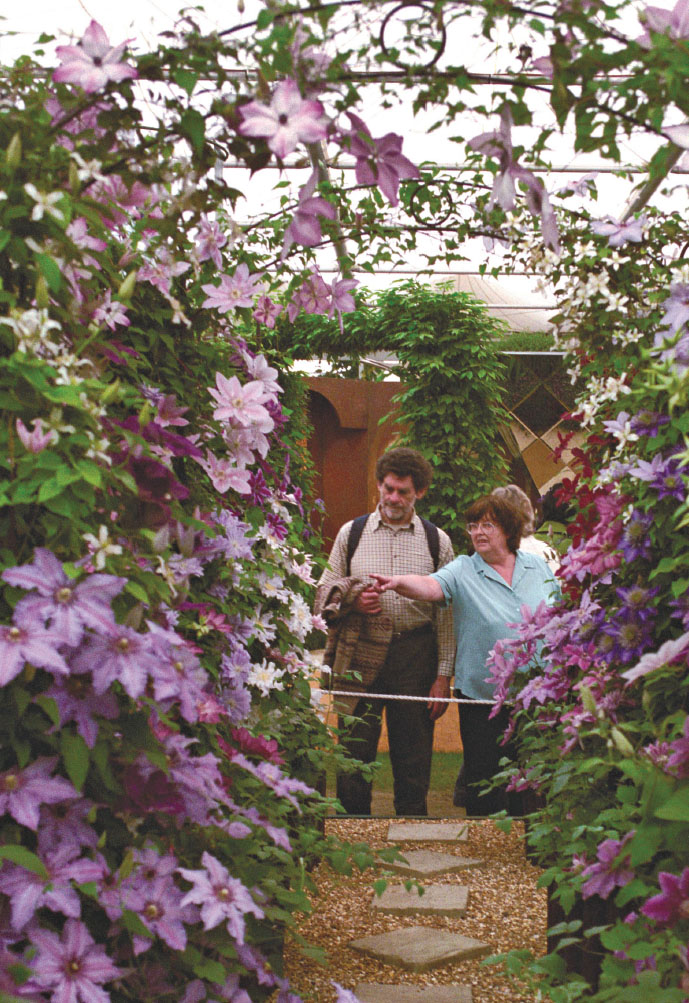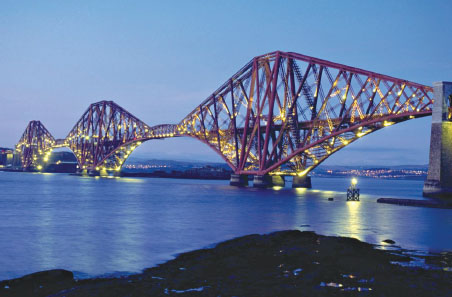
[caption id="Travel_img1" align="aligncenter" width="96"]

WE WON’T PRETEND that the economic climate is good. Obviously, many people have been affected by the sudden economic downtown that has been felt across the globe. Grim as the news has been, however, the cloud does indeed have a silver lining. The pound has declined by more than 25 percent against the dollar over just a few months, and travel in Britain is more reasonable that it has been for many years.
If you have wanted to travel to England, Scotland and Wales, this may well be the year to do it. Unhappily for Britain, the drags on its economy are significant. For the travel trade and retail shopper, however, the news is good. This Christmas, some 10 million foreign visitors traveled to London just to shop. Shopkeepers reported the highest level of Americans in stores since before 9/11. London, long considered among the most expensive cities on earth, is at its most affordable in 20 years or more.
Whether your dreams include joining The Gathering in Edinburgh this July, finally seeing the Chelsea Flower Show, finding your ancestral village in the coal valleys of Sout Wales or making a first panoramic tour of Britain, consider fulfilling them this year.
When I was planning my second trip to Great Britain in 1980, my old Yankee grandfather just could not understand it. After all, I had already been there. Grandpa’s attitude toward travel was simple: “Why should I travel? I’m already here.” Despite the fact that he read National Geographic religiously for decades, Grandpa just didn’t get it.
Travel to visit relatives, attend to business or to lie in the sun is purely functional, of course. Travel to travel, though, is to get out and explore the world—to have life experiences of any and every description that one would not have at home, to visit the myriad sites where history was made, to see unknown beauty in the natural world and in the gardens of civilization.
No destination on earth has such a concentration of historic locales, varied and verdant landscapes and cultural riches as Great Britain. And no transcontinental travel destination for North Americans is as accessible in its life, popular culture, social values and genuine fondness for Americans as Britain.
For travelers, the news is good. If you have wanted to travel to England, Scotland and Wales, this may well be the year to do it.
I realize I need not effusively list for British Heritage readers examples of the great travel experiences that welcome visitors who cross the pond: London theater and the Lake District, the British Museum and the Yorkshire Dales, the Cotswolds and Canterbury Cathedral, not to mention Wales and Scotland. Around every corner of the island is something interesting to be seen, some new experience to be savored and remembered.
Not long ago, regular British Heritage writer and photographer Jim Hargan suggested a story for our “A Day to Visit” series on Stockport—a fairly insalubrious industrial suburb of Manchester, well off the radar of leisure travelers of any description. I duly declined. When he found himself stranded in Stockport, however (see his article “Train Tricks” in the last issue), he found it a perfect example of how virtually anywhere you end up in Britain, a fascinating history and interesting experiences await. Jim gets it.
Despite the increased security measures of recent years, travel around Britain has never been easier. There are, of course, a plethora of commercial tours available, from general dashes around the island in a week or two to more moderately paced explorations by theme, region and pocketbook. These generally have the advantage of being good value for the money—at any place on the quality spectrum. The coach driver is paid the same whether there are six people or 40 riding along, and hotel rooms are definitely cheaper by the dozen. Tour groups are a terrific way to travel for folks who would like to have someone else make all the arrangements and who enjoy the company of other travelers.
[caption id="Travel_img2" align="aligncenter" width="689"]

BRITAINONVIEW/TROIKA/MICHAEL WALTER
The age of the Internet, on the other hand, has made every person his own travel agent. Itinerary planning, hotel reservations, flights, tickets for trains or theaters in the West End, car rental and more are all remarkably easy online for those who would set their own agenda. A few keystrokes can uncover a B&B on the Northumbrian coast or a historic coaching inn in Southwell.
[caption id="Travel_img3" align="aligncenter" width="452"]

BRITAINONVIEW
Web sites like www.visitBritain.us are a great place to start, but Web searches on any British destination will quickly bring you to local travel and tourism pages. There are always helpful Web addresses in our “Anglo-file” and feature story sidebars. There is nothing difficult or frightening about making bookings online these days, and often there are deals available online that aren’t otherwise known. Online booking can also lock in a rate of exchange and sometimes eliminate the cost of a currency conversion.
Don’t be intimidated by the unknown. Virtually anyone can book a flight, hop over to London and take the train up to Norwich or Aberdeen for a few days. Or take a car and loop through the countryside of Sussex and Hampshire, to Petworth and Brighton, Winchester and the New Forest. You can book it all ahead, or just show up. Helpful, efficient Tourist Information Centres in every market town will be happy to help you find accommodation at hotels, inns and B&Bs.
As with every issue, we have filled the May British Heritage with great travel ideas and destinations, from St. Columba’s island mission on Iona to Butser Ancient Farm. This would be a great year to take that trip to Scotland for Homecoming 2009, or rediscover your Puritan roots at the 750th birthday party of the Boston Stump.
And for the first time since becoming British Heritage editor in 2004, I am taking readers along with me on a jaunt down to Thomas Hardy country and up into the Wye Valley of South Wales. We’ll get some great stories for the magazine and have some unique adventures, I’m sure. It will be a real joy to take to the road with a few interested and interesting British Heritage readers.
The secret to great travel is to anticipate and to enjoy the challenge of finding Plan B when the necessity arises.
PLANNING THIS SUMMER TRIP, A Book Lover’s Journey, I was reminded again how often the most memorable experiences of travel in Britain are those that were never on the itinerary. For several years, long ago now, I took students to Edinburgh in February—not the fairest month in the Athens of the North. One night after dinner, I would pile the young people into cabs and we would ride out to Queensferry and the Forth Bridge.
There, we would walk to the middle of the three-mile Forth Bridge, 300 feet above the black water of the Firth of Forth, in the damp, piercing cold of an icy wind off the North Sea. And the Forth Rail Bridge lit up like a string of evanescent pearls down water, and the lights of Leith Harbor beckoned in the distance. We would warm afterwards before the open-hearth fire at the Queensferry Hotel before calling taxis back to town. Many times in later years I heard from students that the evening was the most memorable event of a train trip that included the wonders of London, York and Edinburgh.
Traveling with anticipation and with openness not only to the new, but to the unexpected experience enhances manyfold the richness of travel in Britain.
My first serious foray around Great Britain, now three decades ago, I did with a monthlong Britrail pass, and a duffle bag slung over my shoulder. I had scrupulously plotted a train journey that would take me from Canterbury to Penzance to Inverness and as many points in between as I could accomplish. By the second week, I had tossed out the rigid itinerary, as it proved not so much undoable as irrelevant. With a missed train here and a wrong train there, I ended up in unexpected places and at unexpected times. It’s a challenge finding a B&B in Canterbury at 10:30 at night. I didn’t want to be stranded in Doncaster for a day. I hadn’t planned on ending up in Shrewsbury.
Remarkably enough, I got to Canterbury, Penzance and Inverness, but my journal recorded a very different experience from that which my carefully planned itinerary had predicted.
There were two lessons in this first trip that I’ve never forgotten. The first is that you have to embrace Plan B. In international travel, something is going to go wrong. Somewhere along the line, whether at the airport, in ground travel, weather, health or other act of God, the trip is not going to go as planned. The secret to great travel is to anticipate that emotionally, and to enthusiastically enjoy the challenge of finding Plan B when the necessity arises.
The second lesson is that, as Jim discovered in Stockport, virtually anywhere you end up in Britain—on a village train platform or in an industrial city—you are always within walking distance of something interesting to see; some local icon of scenery or history. Every neighborhood has a local historic celebrity; every town has a connection to someone in American history. An old mill, a Norman church, a local museum, a priory or castle ruins, an author’s birthplace or a friendly pub: Over 2,000 years, nearly every corner of our sceptered isle has played some notable part in the tapestry of Britain’s history.
For many years, I led small groups of intrepid travelers to Britain on itineraries called The Unexpected Adventure. The dozen or so hearty Anglophiles signed on to travel with me for 10 days in Britain without knowing where we were going or what we were going to see. In all fairness, before departure they did receive hotel lists and such appropriate information, but these were indeed days of unanticipated discovery. Wherever we went, from Ironbridge Gorge to Aldeburgh, the Rhondda Valley to Melrose Abbey, was greeted with shared delight.
If your antenna is tuned to travel, it is indeed all a delight.





Comments